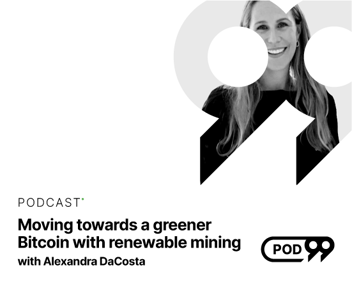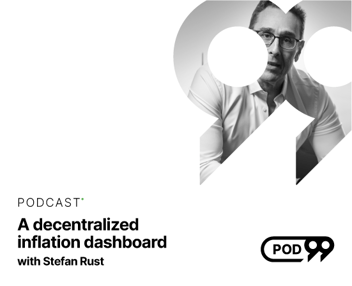In this podcast episode, Andy speaks with futurist Ross Dawson about his book "Thriving on Overload" which addresses the challenges of managing information overload in a world where technology has created more data than can be consumed. They discuss strategies for processing information effectively and making better decisions, including metacognition and visual frameworks for thinking. They also touch upon various topics related to the future such as AI and its implications for society, wealth creation through finding ventures that create value for others, and the role of humans plus AI in creating value together.
Andy Pickering - Host
You're listening to POD99, a podcast by Wealth99 that helps the 99% take control of their financial future. Hey folks, Andy here. My guest today is Ross Dawson. Ross is a globally recognized futurist, a keynote speaker, an entrepreneur, and he is a prolific author as well. Welcome to the show Ross, please introduce yourself…
Ross Dawson - Guest
Wonderful to be here. Thanks Andy. I've done many things over life, so I worked in computing, stockbroking, financial, publishing and journalism. So I've written five books which have taken me across many different industries. I did a lot of work across financial, professional, media, technology, education, government, healthcare, retail, sort of a lot of industries. But more than being a futurist, I'm saying, I know what's going on. My job is to help other people be more effective at thinking about the future. So I work a lot with boards, executive teams and a lot more diverse people on thinking about how to make sense of the world in order to make better decisions today so that hopefully we can shape a better future.
Andy Pickering - Host
Yeah, that makes sense and that is so important. And I suppose that brings us to, I think it's perhaps your most recent book, but it's certainly extremely relevant to the world that we find ourselves in 2023. Ross, I'm talking about the book which is called Thriving on Overload. So I suppose it's all about finding different means and strategies to deal with the constant input of information and data, the superabundance of information that is today's world.
Ross Dawson - Guest
Essentially the brain is the most amazing thing we know in the universe by a long shot. However, it is limited. So we have the cognition of our minds, which is absolutely extraordinary. But it is limited. And now we have built through, as you're saying, our technologies. We've built a world where we have created far more information than we could ever consume. So we're finite minds with infinite information. So this means that our brains are not well suited to our environment. Our brains have been trained to look for novel information, dopamine-fed reward systems, leading us to forage for information where in fact, wherever we turn there is unlimited information. So our default modes of our brains are not really functioning well. So we have to essentially be aware. We require metacognition.
That is, we need to be aware of our own cognition and understand where it is failing us, where it is supporting us and how it is we can improve that. So in the book, I point to what I call the Five Powers for Success in a world of exponential information, which is ways to essentially take unlimited information and pull that into making better sense of the world so that we can make better decisions. We can see opportunities before other people, we can see the connected dots of all of the extraordinary change in ways that enable us to keep ahead of accelerating change.
Andy Pickering - Host
Yeah, interesting. And it's a double-edged sword, isn't it? Because in one sense, it's incredible that we live in this time where for the first time ever, we have essentially access to all of the information that humanity has ever produced. But it's like to give a kind of real-world example, it's the paradox of choice. So a good way to understand that is if you're subscribed to a number of different streaming platforms, say you've got everything from Apple TV to Netflix to Amazon Prime, all the other ones that are available locally in each country. Sometimes you sit down on the couch after dinner and you're like, man, I'm just swamped by information. I can't even decide what TV show to watch. It's that overwhelming sometimes.
Ross Dawson - Guest
Yeah, absolutely. And so we have a world of abundant information, super abundant information. There's all we could ever want. I think one point here is that this means that we need to change our mindset. And so one is to say this is completely overwhelming, I'm swamped, I'm overloaded. One response, or another response is to say, I have all of the information I could ever want to achieve what I want. So more than ever before, if you want to achieve anything, the resources are there and you can choose. So we have abundance now in an abundant world that in fact leads to two different responses. One is basically overwhelmed and you don't necessarily function very well. The other is that you use what you've got extremely well.
So an example of that is food, where now today there are more super fit people than ever before and there are more obese people than ever before. So you’ve got the choices, anybody can pick up the most body destroying food you can imagine. Tastes good, tastes good, but it ain't good for you. And there's other people who are saying, all right, I'm going to get the super kale smoothie and not even going to look at these other things. So the same thing with information. There are so many people that are just getting swamped. They're just picking up their phone, looking at what 's going on and they're just going all over the place and they're really going backwards. I think of this difference between cognitive evolution and cognitive devolution.
And essentially by default, if we just use what our brains would normally tend to do in our information rich environment, we are going to get dumber. Yet we have the choice to be able to use that information intelligently, to structure things, to be able to make sense of the world in a way that our cognition evolves and we become more intelligent. And to a point, I think there's so many forces that are pulling us apart as a society and that includes, as suggested, in terms of health and fitness and definitely in terms of our cognition and our ability to make sense of this extraordinary world.
Andy Pickering - Host
Yeah, very much so. What would you say to perhaps young people who are looking to carve a path forward in their life and perhaps they are looking to achieve significantly better outcomes in terms of health? You talked about health. That's a great example. Another one would be wealth, how to create wealth. How do you figure out what is good information versus bad information? In this crazy social media, algorithm driven world of information abundance?
Ross Dawson - Guest
First, we do need to recognize that multitasking is not real. And we do need to carve out periods of time for particular activities being focused on having our minds being present in one space. And this requires training. And part of it is saying, look, it's fine to scroll through Instagram or TikTok as long as there is a bounded time to it. So you can say, all right, for whatever period of time, it could be long, it could be short, saying I am going to do that and I know I'm going to do that. I'm not going to kick myself for doing it because I've said that this is the time for doing that. But at the end of that, you stop.
And then there are times when you are engaged with one other task which could be reading something you found really interesting or to be able to think. And so one of the great tools which we have, which is now augmented by technology, we can still use paper and pencil as visual frameworks for thinking. And part of this, I think, for anybody at any age, people say, all right, I'm trying to make sense of tokenization, of DAOs, of new investment structures, whatever they may be, and to actually sit down and say, all right, well, these are the pieces. These are how these fit together. And this is the sense that this is how I make sense of this and have a distinctive view that requires you to actually go and see, well, what are other people in the space thinking?
Thinking requires you to go and read that and you say all right, I'm going to pull these pieces together, I'm going to make a choice of what these are and collect those. And now there's more and more technology tools. A lot of in fact I've seen my preteen daughters at times use Notion where you can actually start to structure your ideas and your information. So I think that idea, the fundamental idea of watching what you are doing, be aware that you are doing this idea of metacognition you're thinking about and observing and being aware of what it is you're doing with your information and first step is simply saying can I see anything which might help me?
And then the other thing is just being able to say let's make sure that for a period of time I'm doing one thing then I stop doing that one thing and I do another one. In terms of the wealth, I do go back to find the things which you want to spend the time on to delve deep in, to understand and you can't force yourself to do that. I think really wealth creation I believe in ventures rather than financial assets or wealth creation and so this means finding ventures of what it is that people pay for and this requires this is one of the things where it's information. You're observing people, you're seeing what's going on, you're seeing what other people are doing, finding ideas on how to improve that and being able to create tools to see that.
So this is the sensitization to opportunities in a rapidly moving space. The faster the world is moving, the more opportunities will emerge. And this is a sense of you do need to be looking around you at behaviors of people, whether that's interpreted through screens or just physically or whatever you are seeing. What are people behaving like? What are you seeing and what is it that could be created which will create value? Ultimately wealth for yourself comes from creating value for others. That is the fundamental equation.
Andy Pickering - Host
Wonderfully said Ross, thank you for that. And what I really enjoy about talking to people such as yourself, Futurists, really, is you have such a broad range of interests. So I think we should touch on a few other, I suppose, futurist related topics that are especially pertinent to the Wealth99 and POD99 audience. So I'm thinking crypto. I'm thinking tokenization. I'm certainly thinking AI. I'm sure you've got lots to say on all of these things, so let's just skim across them, I suppose. Let's start with AI. Ross, I know you've done quite a lot of work writing and consulting on the topic of AI, and it's funny how AI has very much gone from the theoretical to the practical, really, just in the last, well, twelve months or so, as the sudden release of these large language models has been made available to everyday people.
And, well, it's not hard to extrapolate out and see that our world is slowly and then suddenly starting to change. Implications of AI Ross, what are we thinking?
Ross Dawson - Guest
Well, there's plenty to talk about there, but I suppose that the key point is that there were extraordinary capabilities of AI before November 30, 2022, when Chat GPT was released. The difference is that these are now available to anybody. So now anybody can access this just chat interface. You can actually interact directly with the AI, and this is part of that advancement of technology. So it is a democratization. We can all access those capabilities. In fact, we can even give instructions, write code or do analysis on data and so on, without having to know Python or R or anything else. So this changes the nature of how our brains and AI together create value.
So my framing is humans plus AI, and it's very complementary to what I was describing around thriving, and I've learned which is around how it is we think better. So this is now we can say, well, how can AI help me think better and do better? And so I've created these frameworks where you say, what is it that AI is particularly good at and what is it that humans are good at and be able to weave these together into a workflow. So if we think about what it is you want to achieve? It could be building a better investment portfolio, it could be creating a beautiful work of art, it could be being able to build a plan for business, whatever it may be.
And the idea of saying, driving down, saying, well, what is it that I can create the most value in there? And where is that AI can create the most value? And let's weave these together. This requires the skills to be able to use these tools. Well, we do need to understand that. And again, this is going to be one other divide. There are plenty of people that never even used Chat GPT or other tools like that. And there's plenty that spend a lot of their time working out how to use these better to create value. And this is just another divide. We do need to try these things. We do need the skill to be able to create them.
But particularly we need to go beyond the tricks, the entertainment things of doing a rap about Elon Musk or whatever we have to say. What is it that I'm trying to do in my life? And what are the ways I can break that down into elements where the AI can assist me and the way I use AI, a lot of these tools are essentially to help my thinking when I'm thinking about things, I'm trying to say, well, are there any things which I'm missing? What's the justification for this or against this? Or what else is there? How can I dig deeper into this in order so that I can understand this better? So these are tools that augment us. We have to be framed that way. And now it depends on how we use them to impact society.
It's going to transform work, it's going to make organizations smaller because more and more larger organizations can essentially do things more effectively than they had, but I do believe it will also lead to a proliferation of new entrepreneurial ventures which are enabled by this. So this more far more fluid economy which is essentially driven by those who are best able to use these tools.
Andy Pickering - Host
Yeah, couldn't agree more, Ross and I just see AI as being another extremely powerful tool in the toolkit and it's about leverage, right? The more you can apply these tools, and leverage them to your advantage, the more impact you can create in the world, the more value you can create in the world, potentially, the more harm you can create in the world, depending on your motives. Quick question for you though, Ross. You mentioned that you had kids, right, who are preteen or so just coming up to high school. So do I, and a lot of listeners will as well. It's a really interesting time, I think, for those kids who are just beginning their high school journey because they are entering an education system that is increasingly outdated for today's needs. And it's not really any fault of the teachers or the governments, it's just that it's really hard to keep an education curriculum up to date. But if that is the context and you're a department head or something, would you be embracing tools like Chat GPT or would you be trying to teach kids the old fashioned way and just making sure that they can still read and write using pencil and paper? Or is it both? What would you do?
Ross Dawson - Guest
Well, it is all of these things so nothing is completely one sided. You have to acknowledge both sides. The challenges and opportunities with the opportunity from AI is personalized education and coaching and tutoring. And this is where we need to reframe the role of the teacher to where the teacher is the human connection, the person who inspires. So the function of education should be to instill a love of learning. And a lot of education is broken because it makes kids hate learning. So the role of the teacher is not to get people to get particular grades, it's to get them to love to learn. So they go out and do it for themselves and they continue to do that after school.
So the teacher is the inspiration, the connector, the person to have the conversation with, the person to bring them together, to coalesce all of the resources they have. And that human connection. Whereas AI can provide personalized education, now, this has been the promise for a long time and suddenly it's become real where you can for a particular learning style or a particular way of seeing the world or in terms of particular things. You might love sports and you can use sports analogies and all your math tutoring or whatever it may be, is to adapt and to create presenting ideas in ways that people will understand and students will understand them. So firstly, yes, and it's interesting that the New York public school system was very quick off the bat to ban GPT across all of their school systems in I think the first few weeks of Chat GPT coming out. And then a few weeks ago they said, well, actually, we're now bringing that back. And we recognize our students are not only going to find these useful, but they're going to live in a world where all of these tools are going to be in the workplace and you have to use them anyway. So I think you do have to be careful that for example, students don't just write things in Chat GPT and submit that as their essay because they're not learning through that. So we have to design different types of ways of schooling, which means you are using these tools appropriately, but in ways that teach you. I wouldn't use the word cheating, but not as shortcuts using these AI tools.
It shouldn't be a shortcut to achieving your outcome of writing an essay or whatever it may be. And again, that's why we need to restructure these things. So we have to sort of design new ways where these tools are being used as ways to help people to learn more, to understand more, develop their thinking and to love learning.
Andy Pickering - Host
Fantastic. So well said, Ross, and I think you're exactly right. That is the key. The teacher's role is to inspire a love of learning and then utilize all the wonderful technological tools at our disposal to give kids the ability to teach themselves, follow their passions and learn how to apply leverage to create value in the world. Very nice. All right. I said we'd talk about crypto, and tokenization a little bit. One of the key missions here at Wealth 99 is to make alternative assets available to the 99% of people who maybe haven't had these kinds of financial opportunities. And we see crypto and tokenization as one path forward to that further democratization of opportunity.
Ross Dawson - Guest
So I'll probably say things a little bit differently than most of your other guests here, I guess. Firstly, crypto is built on blockchain. And I think that the ultimate thing here is that blockchain is a distributed ledger and the value of that is extraordinary. And as a tool for changing the economy, with tokenization as the manifestation of that, where we can start to build a more fluid economy. And I think that's one of the most interesting pieces where we can take, for example, real estate or yachts or even traditional financial instruments and tokenize them so that we can get ownership without requiring large chunks of money. So you can be a homeowner of a token representing a fraction of a home as opposed to buying the whole home itself.
So this is recreating a more fluid economy where we can work more and more while breaking down the larger chunks of the economies where we can participate in more ways. And I think there's a lot of new ways of thinking about these. So these are still only really coming to market, but this is where we need to think about the diversification of our assets. To your point, you should just be able to access public equities and a few other investment assets, not just because you were a sophisticated investor, or special investor and had various levels of wealth. And so now this leads to diversification. So we now have the opportunity to have a more diverse portfolio to invest in things where we see opportunities, whether or not we have the weight of wealth to be able to do that.
Now, in terms of crypto, I think crypto, as we can traditionally think of bitcoin and ethereum and other vast array of other coins. Are you a true believer? As in, do you believe bitcoin will go to hundreds of thousands or whatever coin is going to be successful? But overlaying the macro case for the long term, for crypto, it's all speculation. And so crypto traders are essentially speculating. It's an asset which goes up, goes down, a lot of volatility, a lot of things which influence that in all time frames people are speculating based on current information which doesn't predict the future.
So I think that essentially I would say that in terms of crypto, if it's not long term investing based on a case that you believe that the value is going to be substantially more in the higher then anything which is shorter term is essentially speculation which is fine as long as people recognize it.
Andy Pickering - Host
Yeah, I couldn't agree more Ross, I think short term day trading is simply a bad idea unless you're actually a really good trader but for most people, yeah, it's just not a good idea. You're much better off just having a long term investment strategy and a diversified portfolio of assets that you have strong conviction in and one example might be gold and precious metals. So we have gold, silver, and various precious metals available through Wealth 99 but in tokenized form as it provides all the benefits of tokenization via blockchain, makes the asset more liquid, safer to store, easier to move in and out of if you like, but still pegged to the real world value of gold and silver.
Bitcoin, well in my view just bitcoin makes sense just as a hedge against the craziness of the world. Bitcoin's monetary policy as I'm sure you know Ross is hard coded, it is simply math, it is predictable, it is not controllable by a random, not even elected bunch of humans - I think there is potential value there. It is digitally scarce in an increasingly digital world.
Ross Dawson - Guest
Yeah, absolutely. Part of the challenge is that we're inevitably moving to digital currencies and the CBDCs are already here, we're going to see more of them. And one of the challenges is the on ramps and the off ramps from digital currency to non central bank digital currency to central bank digital currency. And the way things are going, it is going to be harder to get things in and out. Certainly there's tax authorities getting pretty good at being able to keep track of what's going on with your anti money laundering and your, know, your customer type regulations. So one of the questions is the degree. Do we see this as a true alternative, as almost distinct financial systems as opposed to complementary where they coexist and you're seeing a lot of flows between them?
But at the moment the regulation is making it pretty tough to get things in and out, certainly without the knowledge of the authorities. So that's one of the key dimensions is the degree to which we have these as relatively distinct financial ecosystems whereas ones which are truly integrated.
Andy Pickering - Host
Absolutely. And look, you certainly still do need to play by the local laws in your local jurisdiction and make sure you're paying your taxes and things like that. But you're exactly right, Ross. There are varying degrees of regularity certainty or uncertainty around the world as different government authorities try and lay the necessary frameworks for these new monetary rails. Look Ross, it has been amazing talking to you today. I think we'll go to a very quick break and then we'll come back and we'll just finish off with some rapid fire questions, see what you've got to say. Ross, I like to finish each podcast just with a quick round of rapid fire, kind of hot take style questions. Question one for you. What is one piece of financial knowledge that you think should be taught at schools?
Ross Dawson - Guest
The time value of money is the most obvious one, but I think the other thing is simply the sophistication of the financial institutions with which to know your counterparties if you're going to engage. And I think that you just need to know the reality is if you're stepping into the market, you're dealing with Goldman Sachs and they're pretty sophisticated.
Andy Pickering - Host
Yeah, absolutely. Know the playing field, know who you're up against. And what battles are worth fighting. Okay. What would you say is your most contrarian view on building wealth?
Ross Dawson - Guest
I'd say wealth is not just financial and that, I think, doesn't measure everything in dollars. Wealth is more than money, and yes, it includes that, but it's a lot more than that. So make sure you are not measuring your wealth and your success only with dollars or pesos or whatever it may be.
Andy Pickering - Host
Yeah, absolutely. Great perspective. Very much agree. Ross, if you were, say, 20 odd years old today and you knew what you knew now, what are one or two steps you might take towards securing you and your family's future?
Ross Dawson - Guest
Well, basically save every month and invest in long-term assets. And to be frank, I believe tokenized real estate is great. But if you look at the stock market over a long time, it's done pretty well in compound interest. So save money, put it in anything that compounds and that grows over time, and put it away, forget about it.
Andy Pickering - Host
Yes, indeed. Good advice. Set and forget, have a long-term time horizon. Ross. You're the founding chairman of the Advanced Human Technologies Group. What is the Advanced Human Technologies Group?
Ross Dawson - Guest
So the Advanced Human Technology Group is four companies which looks which covers a whole variety of domains. So there is some professional services. There's some publishing. Future Exploration Network helps organizations think about the long-term future. An informivity it's actually a recent well just formed in the last year, which is a startup that focuses on AI. Well, themes that I talked about before using AI to complement our brain. So it's really a set of organizations. And one thing which is distinctive about it is based on almost exclusively part-time talent. So this is this thesis where I believe there's an extraordinary number of amazingly talented people who don't want full-time jobs. They want part-time work.
And so I use that pool of people around the world, some locally where I am in Bondi Beach, some around the world, and building this alternative model for how organizations can function to be able to build essentially distributed enterprises.
Andy Pickering - Host
I love it. All right. DAOs. A DAO is a decentralized, autonomous organization. Is there a potential path forward in terms of exploring new means of governance for these increasingly advanced technological societies that we're building?
Ross Dawson - Guest
Absolutely. I'm a big believer in the potential of DAOs. So I always go back to Vitalik Butterin's original framing, where he describes them as automation at the center and humans at the edges. So this is where we have a structure whereby human labor, talent, capabilities, work, is put into a system whereby there's an algorithm that combines that to be able to work out who are the right people to contribute to that how that's all combined, how it is value is distributed as a result. And so we have a lot of DAOs today, none of which have really fulfilled that original vision. And partly, we don't have the sophistication of the algorithms.
But I think there is still this potential for truly autonomous organizations, ones which are not just a bunch of people voting, but where human labor is combined with AI, to be able to create entities that have a life of their own. And I'm really excited to see the next steps in that space.
Andy Pickering - Host
Yeah, very well said. And I think that's kind of been the theme of today's podcast, Ross, it is that the future is some kind of creative partnership between humans and AI. Just human creativity, leveraging the power of AI and technology to essentially, hopefully, create more and more value out in the world, the galaxy, the universe, which feels like a nice place to finish off, really, Ross. Tell the listeners where they can find more about you and your various podcasts, books, all that stuff.
Ross Dawson - Guest
Sure. Well, there's Rossdawson.com. My Twitter profile is @RossDawson. Thrivingonoverload.com is where my book resides.
Amplifyingcognition.com, which is where my podcast is migrating to.











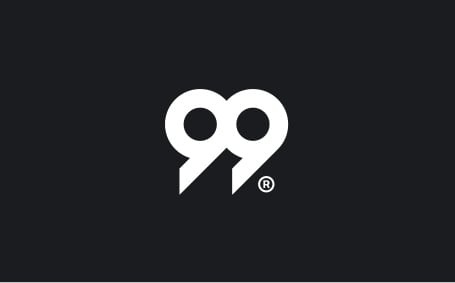

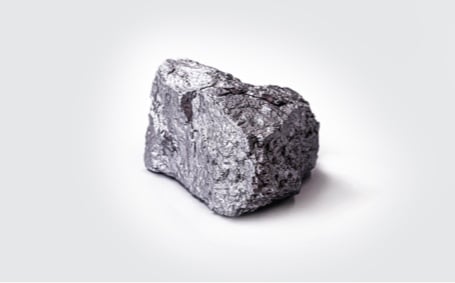
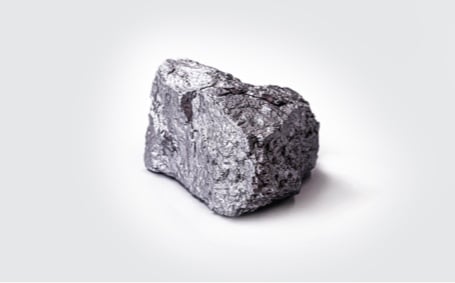

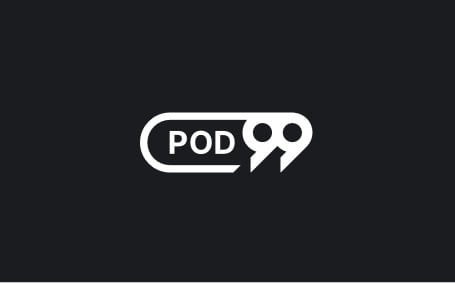




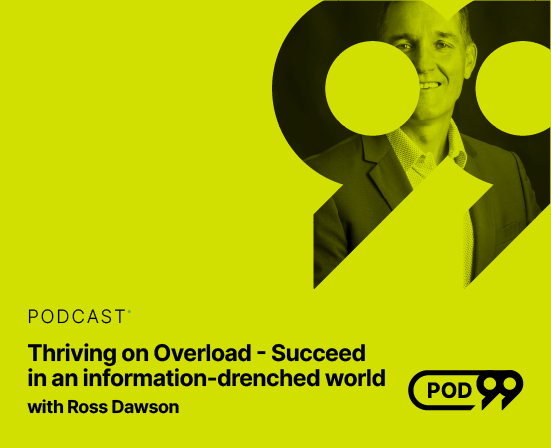


.svg)
.svg)
.svg)

.png?width=352&name=Wealth99%20podcast%20Website%20thumbnail-Jamie%20Finn%20(1).png)
